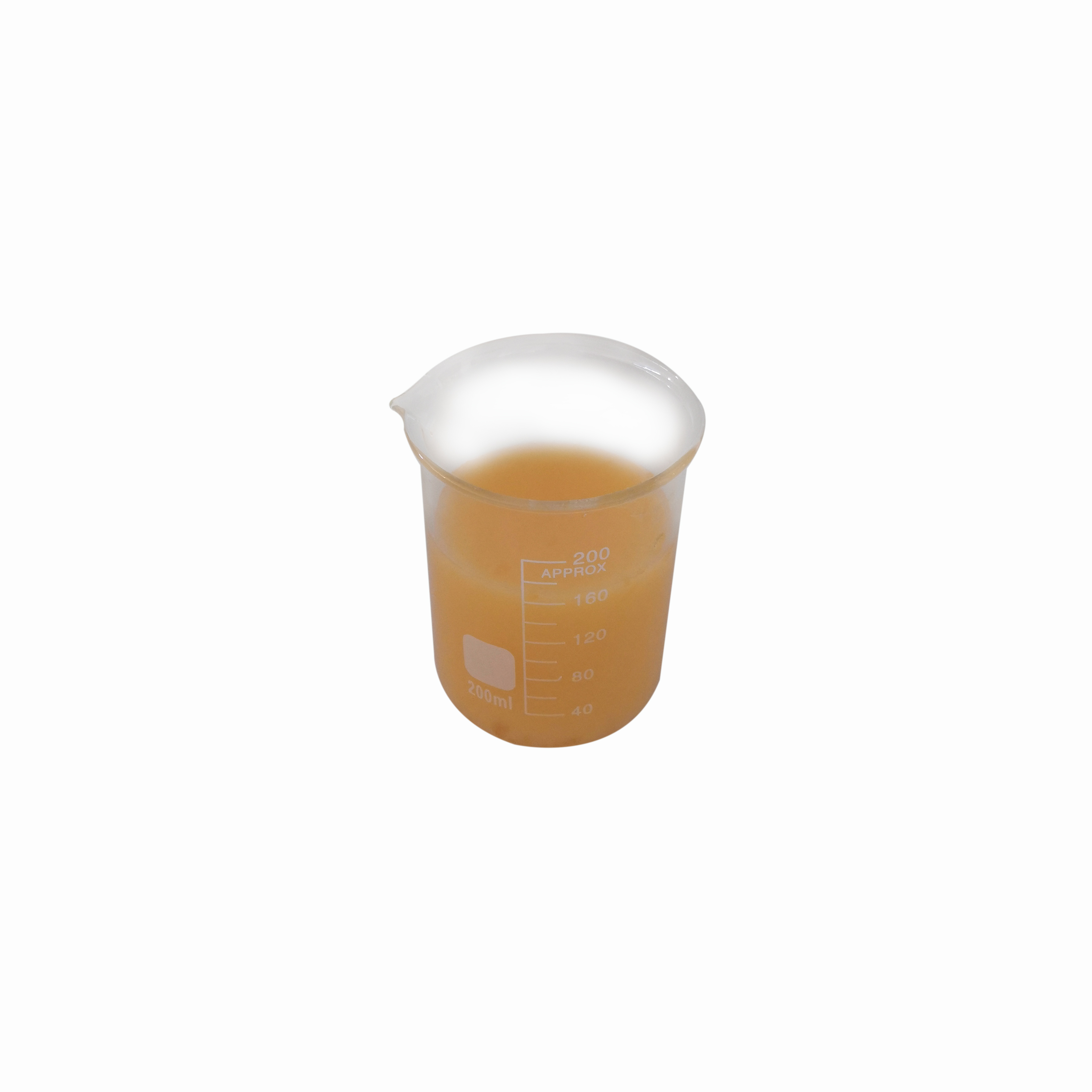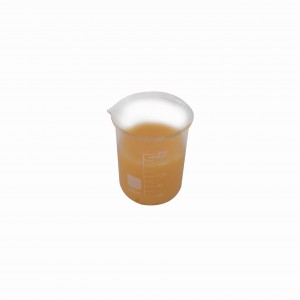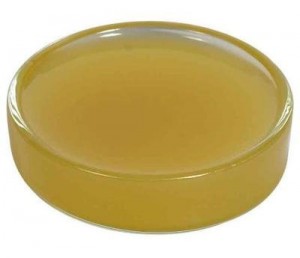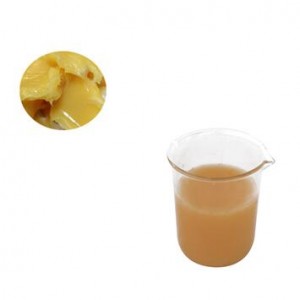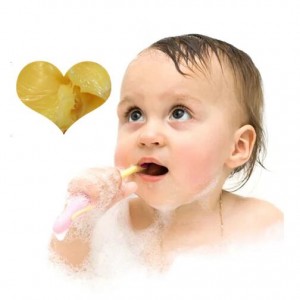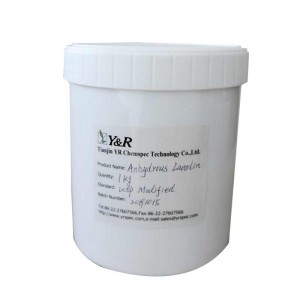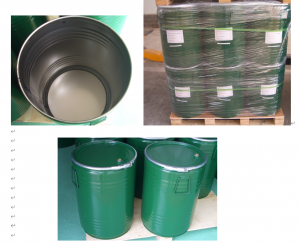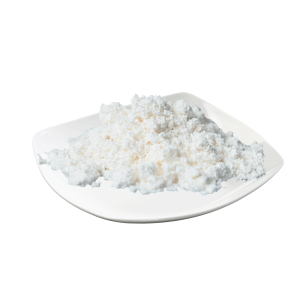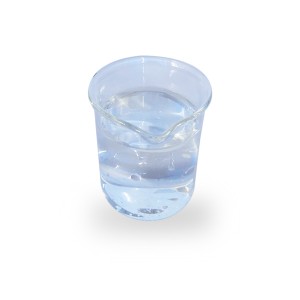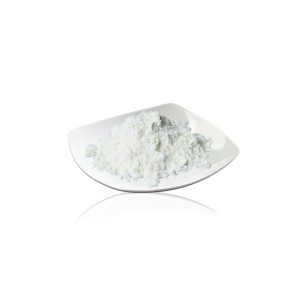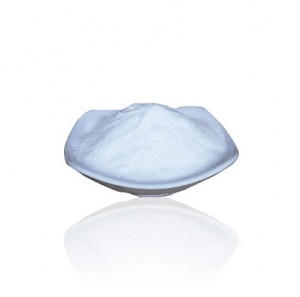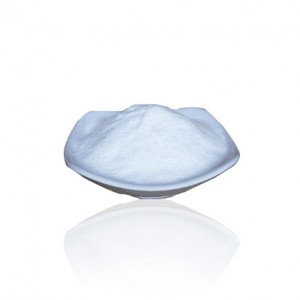Anhydrous Lanolin USP Grade
Lanolin is a pale yellow, tenacious, unctuous substance obtained from the wool of sheep, having a faint characteristic odor.Lanolin is classified chemically as a wax, being a complex mixture of naturally occurring esters and polyesters of 33 high molecular weight alcohols (principally sterols) and 36 fatty acids comprise an approximately 50/50 ratio.Lanolin is an extremely effective emollient in restoring and maintaining the all important hydration(moisture balance) of the stratum corneum and so prevents drying and chapping of the skin. Equally important, it does not alter the skin’s normal transpiration.Lanolin has been shown to cause the water in the skin to build up to its normal level of 10-30%, by retarding without completely inhibiting trans-epidermal moisture loss. Lanolin has the unique property of absorbing twice its own weight of water.Lanolin has the physical properties of increasing adhesion to dry skin and forming protective films on the skin.LANOLIN is self-emulsifying, producing very stable w/o emulsions with water and is often used in this hydrous form.
Key Technical Parameters
|
USP LP |
USP X-Tra LP |
USP LP Gardner 5 |
USP X-Tra Deodorized |
USP89 |
LanoPure USP Modified |
|
|
Color,Gardner |
9+ max. |
10+max. |
5+ max. |
8+ max. |
8+ max. |
10 max. |
|
Odor |
None |
None |
None |
None |
None |
Mild,Characteristic |
|
Acidity,ml |
2.0 max. |
2.0 max. |
2.0 max |
2.0max. |
2.0 max. |
2.0 max. |
|
Melting Point,℃ |
38~44 |
38~44 |
38~44 |
38~44 |
38~44 |
38~44 |
|
Iodine Value,% |
18~36 |
18~36 |
18~36 |
18~36 |
18~36 |
18~36 |
|
Water,% |
0.25 max. |
0.25 max. |
0.25max. |
0.25 max. |
0.25 max. |
0.25 max. |
|
Ash,% |
0.1 max. |
0.1 max. |
0.1 max. |
0.1 max. |
0.1 max. |
0.1% max. |
|
Chlorides,% |
0.035 max. |
0.035 max. |
0.035 max. |
0.035 max. |
0.035 max. |
0.035 max. |
|
Free Lanolin Alcohols,% |
-- |
-- |
-- |
-- |
-- |
6.0 max. |
|
Ammonia |
Meets USP |
Meets USP |
Meets USP |
Meets USP |
Meets USP |
Meets USP |
|
Water Soluble Acids/Alkalis |
Meets USP |
Meets USP |
Meets USP |
Meets USP |
Meets USP |
Meets USP |
|
Water Soluble Oxidisable Substance |
Meets USP |
Meets USP |
Meets USP |
Meets USP |
Meets USP |
Meets USP |
|
Alkalinity |
Meets USP |
Meets USP |
Meets USP |
Meets USP |
Meets USP |
Meets USP |
|
Petrolatum,% |
1.0 max. |
1.0 max. |
1.0 max. |
1.0 max. |
1.0max. |
Meets USP |
|
Pesticide Residues,ppm |
40 max.(Total) |
3.0 max(Total) |
40 max.(Total) |
40 max.(Total) |
-- |
3.0 max.(Total) |
|
10 max.(Individual) |
1.0 max.(Individual) |
10 max.(Individual) |
10 max.(Individual) |
-- |
1.0 max.(Individual) |
|
|
BHT,ppm |
-- |
-- |
-- |
-- |
-- |
200 max. |
APPLICATIONS
Lanolin is a wax ester—a lanolin acid covalently linked to lanolin alcohol (e.g., sterol). Lanolin is similar in function to sebum that comes from sebaceous glands in the human skin. Sebum, like lanolin, acts to waterproof hair and skin. Because of its moisturizer or emollient (reducing water loss and itching) and antimicrobial actions, lanolin is used in personal care products, such as baby oil, diaper rash products, hemorrhoid medications, lip balm or salve for chapped lips, lotions and skin creams, medicated shampoos, makeup (lipstick, powder, foundation), nipple cream for lactating mothers, and shaving creams. Moreover, there are multiple industrial uses for lanolin including as a lubricant, leather production, textile additive as an emollient making textiles softer, in paints, varnishes, polishes, inks, and as waterproofing for concrete.
- Baby Preparations
- Hair Products and Hair Spray Plasticizer
- Lip Products
- Protective Creams and Lotions
- Paste Shampoos
- Shave Cream
- Sunscreens
- Burn Aids
- Hand Soap
- Decorative Cosmetics
- Pet Products
*An Industry-University-Research Collaborative Innovation Company
*SGS & ISO Certified
*Professional & Active Team
*Factory Direct Supplying
*Technical Support
*Small Order Support
*Broad Range Portfolio of Personal Care Raw Materials & Active Ingredients
*Long Time Market Reputation
*Available Stock Support
*Sourcing Support
*Flexible Payment Method Support
*24 hrs Response & Service
*Service and Materials Traceability


